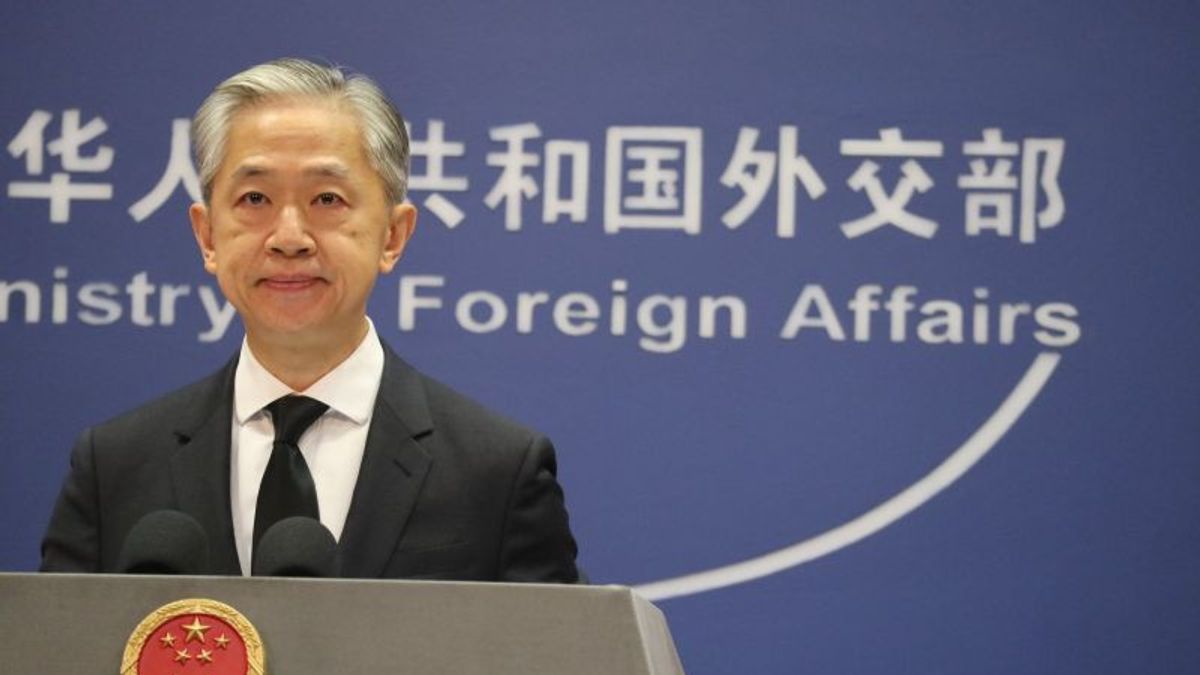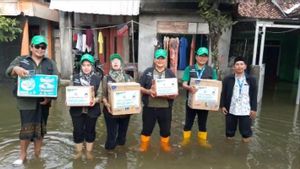JAKARTA - China, through Foreign Ministry Spokesperson Wang Wenbin, responded scathingly to the implementation of the third round of discharge of processed wastewater from the Fukushima Nuclear Power Plant (PLTN) into the sea.
"Despite opposition from within and outside the country, Japan has dumped 15,600 tons of nuclear contaminated water into the Pacific Ocean, blatantly and irresponsibly spreading the risk of contamination throughout the world," said Wang Wenbin as reported by ANTARA, Thursday, November 2 .
The operator of the Fukushima nuclear power plant, Tokyo Electric Power Company (TEPCO), on Thursday (2/11), began the third round of dumping processed wastewater from the Fukushima nuclear power plant into the sea by dumping 7,800 tons of cooling water from the reactors that were destroyed after the 2011 earthquake and tsunami.
The time required for this third round of disposal is around 17 days.
"The recent incident of splashing radioactive wastewater onto workers at the Fukushima nuclear power plant is another example of TEPCO's problematic internal management and habit of deceiving the public. This once again calls into question the credibility of Japan's supposedly 'safe and transparent' waste disposal plans," Wang Wenbin added.
According to Wang Wenbin, Japan needs to take widespread international concerns seriously, conduct thorough consultations with other stakeholders, especially neighboring countries and dispose of nuclear-contaminated water in a responsible manner.
"As more and more Fukushima nuclear-contaminated water is discharged into the sea, it becomes increasingly urgent to implement international monitoring rules that will remain effective in the long term with substantive participation from all stakeholders including Japan's neighboring countries," said Wang Wenbin.
The IAEA, said Wang Wenbin, needs to play its role and Japan must cooperate fully to avoid the further consequences of dumping waste into the sea.
Since the end of August 2023, TEPCO has been gradually disposing of wastewater equivalent to 540 Olympic swimming pools stored at the Fukushima-Daiichi nuclear power plant complex.
The nuclear plant is running out of space to build more water tanks, and TEPCO needs to clear the area to perform the much more dangerous task of removing radioactive fuel and debris from three damaged reactors.
اقرأ أيضا:
According to Japan, treated wastewater from the Fukushima nuclear power plant is harmless and highly diluted in the sea, then discharged gradually over decades.
This claim was supported by the International Atomic Energy Agency (IAEA) after conducting an environmental impact survey, including by taking water and fish samples.
However, China and Russia criticized the Fukushima nuclear power plant's waste dumping and banned all seafood imports from Japan.
TEPCO and other Japanese companies were flooded with critical calls from China after the initial waste dump.
The English, Chinese, Japanese, Arabic, and French versions are automatically generated by the AI. So there may still be inaccuracies in translating, please always see Indonesian as our main language. (system supported by DigitalSiber.id)

















